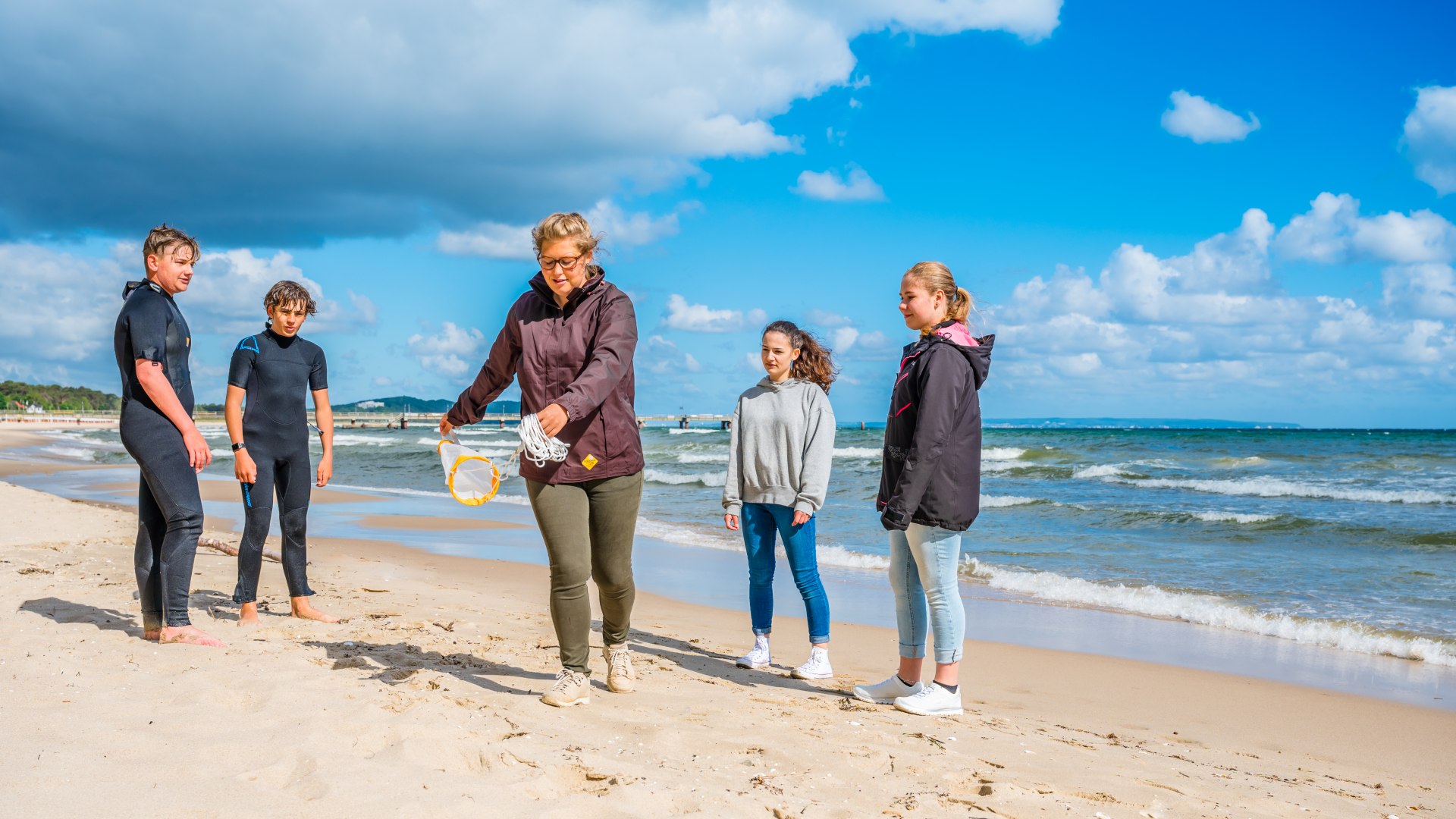The awareness of children and young people for nature conservation and environmental issues has grown considerably in recent years. The Baltic seaside resort of Göhren has long had the right offer for this interest. Göhren is located in the easternmost part of Rügen on the Mönchgut peninsula. First mentioned in a document in 1165, the former fishing and pilot village, whose name does not come from naughty horses, but from the Slavic "Gora" for "mountain", has developed into a popular seaside resort since the late 19th century. Since 2007, the spa administration, in cooperation with the agency „Discover Rügen“, has been organizing the unique project „Urlaubsranger“, which is free of charge for guests staying at the Baltic seaside resort of Göhren: Young holidaymakers, accompanied by expert „ecologists, put their knowledge and enthusiasm for nature to good use by acting as „vacation rangers“, thereby making a valuable contribution to nature conservation in the region. A win-win situation for families on an environmentally conscious vacation with children: The kids have fun and do good at the same time.

Marine biologist Alexandra Hanusch
From Mozambique via the Maldives back to the Baltic Sea
Last summer, marine biologist Alexandra Hanusch led this program. The woman who is marching towards the beach with vacation rangers hardly looks any older than the members of her group. Yet at 28 years old, Alexandra Hanusch is a qualified and experienced marine biologist. Born in Usedom, she has traveled the world, studied in Bremen and several other European locations, completed her master's degree in Mozambique and managed a coral farm in the Maldives for her first real job. But now she is back home to do this new job, which is very close to her heart. „You first have to understand nature in order to be able to protect it“, she summarizes the purpose of her work. And there, Alexandra Hanusch admits, is still a lot to do. „There is currently a certain amount of interest among young people, particularly as a result of the Fridays for Future movement. But detailed knowledge in the areas of environmental pollution, climate change or overfishing is still in need of improvement.“ For this reason, she tries to convey science as entertainingly as possible in her program. She is convinced that environmental education is important, as it is only with the young generation that we can solve the major global challenges together and in the long term.


Alexandra Hanusch makes sure to get the young people excited about science, the secrets of the sea and nature in general with a certain amount of adventure. For example, armed with a wetsuit and plankton net, she has the youngsters take water samples from the Baltic Sea from a depth of one meter. „You can't see anything with the naked eye, but with the ten to twenty-fold magnification of a binocular you can already see microplankton, small crustaceans or benthic invertebrates living on the sea floor.“

Out and about with children in Rügen's nature
Bird counts and seal monitoring
Alexandra Hanusch also marches deep into the picturesque coastal forests of Rügens with her young scientists to take soil samples. „We want to determine the pH value of the soil,“ she says, „and see whether the soil has become acidic due to environmental pollution.The program also includes activities such as tracking bat roosts in the Südost-Rügen biosphere reserve or researching the habitat of lizards, seal monitoring or bird counts. The fact is that in this way, the young guests get to know the unique natural landscape of Göhren, the two sandy beaches over seven kilometers long and the adjacent forests and hillside landscapes of the Mönchgut peninsula, which become a festival of color, especially in the flowering season.

Sustainable vacation with children
So much life in a single drop of water
It comes as no surprise that the region is an exciting place to work for Alexandra Hanusch, who has been pursuing her dream job of marine biologist since childhood. But what do the young „vacation rangers“ get out of seeing crustaceans or microplankton under the microscope at the end of the day? Alexandra Hanusch laughs and only answers after a short pause: „Well, these are small steps, of course. First of all, it is important to me that they see how much life there can be in a single drop of water. That arouses their interest – and that can lead to a desire to get involved in the environment in the future.“





